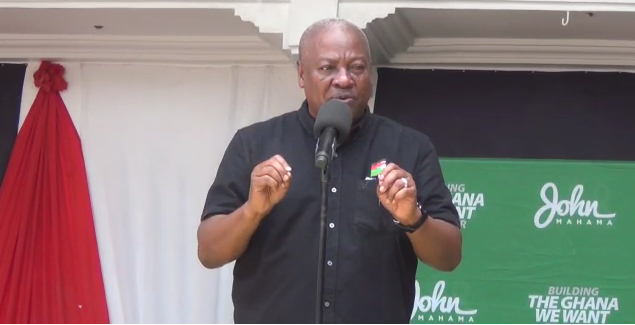The team is expected to conclude its work by the close of today, Wednesday, January 8, 2025.
Chief of Staff, Julius Debrah on Wednesday convened an urgent meeting with key players from the country’s energy sector and other relevant stakeholders to address the ongoing crisis.
On its first day in office, the government confirmed it had received reports from various energy sector stakeholders on the issue.
Acting Spokesperson at the Presidency, Felix Ofosu Kwakye reiterated the president’s commitment to tackling the emerging power crisis.
“Government has been briefed. It’s pretty urgent. In order to address the situation, a technical committee has been set up with representatives from all the key players in the management of Ghana’s energy sector. They have up until the close of day today to put before government the roadmap on what exactly needs to be done and how it can be done. So you can be rest assured that government is taking the matter seriously and will do what has to be done in order to avert any difficulty for the people of Ghana.”
$90m needed to avert crisis
The government urgently needs nearly $90 million to avert a looming power crisis caused by insufficient fuel supplies for thermal plants, according to a report by the Ghana Grid Company (GRIDCo).
The GRIDCo report outlines that the funds are required to procure liquid fuel, such as light crude oil, to operate thermal plants in Tema and meet growing electricity demand.
The crisis stems from a generation capacity deficit following a pigging exercise conducted by the West African Gas Pipeline Company (WAPCO), which temporarily disrupted natural gas supply.
The GRIDCo report details key strategies to mitigate the impact of the fuel shortage and maintain grid stability:
- Rescheduling Planned Maintenance: Revising the schedules for generator shutdowns to avoid overlaps with the WAPCO maintenance period.
- Securing Alternative Fuels: Procuring sufficient quantities of light crude oil or other liquid fuels to substitute natural gas for thermal power generation.
- Load Management Measures: Considering load-shedding as a last resort to stabilize the national grid in the event of severe power shortages.
The report warns that failure to act swiftly could lead to prolonged power outages, disrupting economic activities and public services.
Stakeholders have called for expedited government action to secure funding and implement the recommended measures to avert the crisis.


